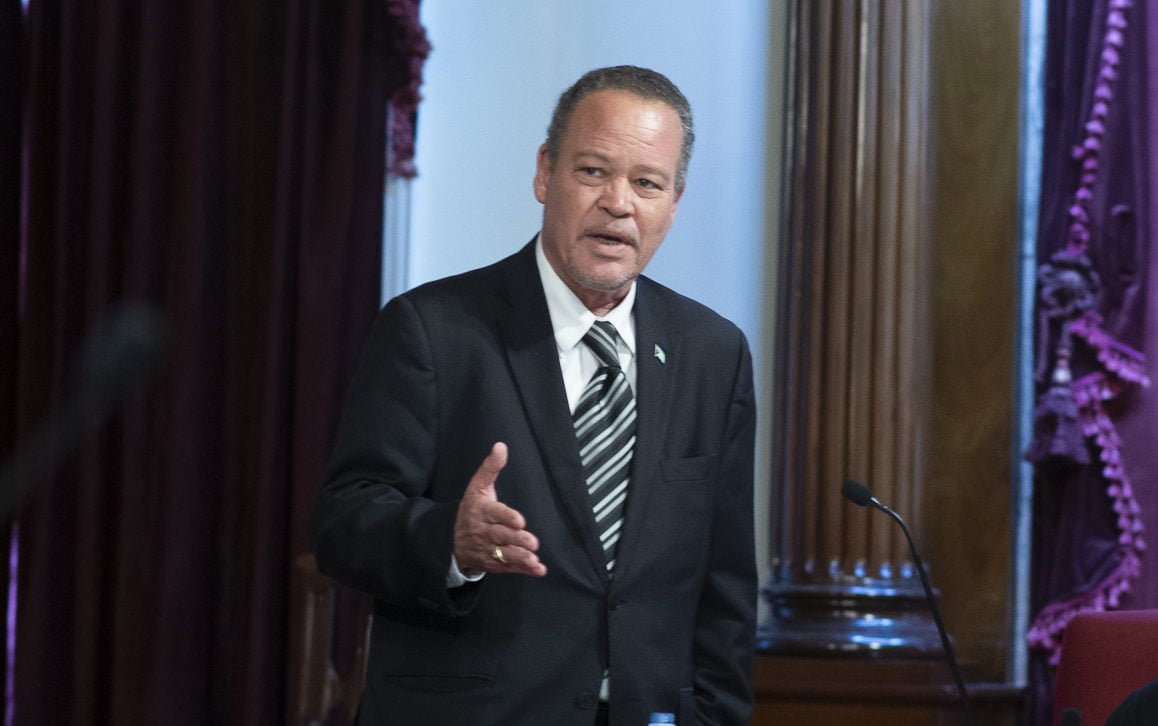NASSAU, BAHAMAS — While The Bahamas faces the immediate imposition of blacklisting by the European Union, Attorney General Carl Bethel said the government, based on its level of financial compliance, has already applied for a re-rating that would result in delisting.
The blacklisting was announced in May 2020, but was delayed to October 1.
The EU’s blacklisting is hinged on countries gray-listed by the Financial Action Task Force (FATF).
During debate in the Senate, Bethel said it is hoped that an on-site visit is held in sufficient time for The Bahamas to get off the FATF gray list in February 2021 at the earliest.
Addressing the imminent blacklisting, Bethel said when the EU rebuffed attempts to respond on a multi-lateral basis, The Bahamas invoked the EU’s treaty commitments to engage in constructive dialogue with all treaty partners before taking “unfriendly actions”.
However, the EU responded that it would only deal with listed countries on a bi-lateral basis.
“This was indeed an unfortunate turn of events, and potentially a breach of international law,” Bethel said.
According to the attorney general, the EU Commission also announced at the time that its blacklist was ‘FATF Plus’, which meant the commission reserved the right to demand changes over and above those required by the FATF.
Bethel said over the past few months the EU Commission has reached out at technical and political levels to indicate concerns over and above the FATF with The Bahamas’ anti-money laundering, counter terrorist financing framework.
The Bahamas has passed packages of bills to address deficiencies in existing law and strengthen the AML and CFT regime.
In 2019, The Bahamas improved its compliance with the FATF’s 40 recommendations, from 18 ‘compliant or largely compliant’ in 2015 to 30 ‘compliant or largely compliant’ in December 2019.
In February 2020, the FATF agreed The Bahamas had “substantially addressed” all matters of concern raised and was granted an on-site visit by the FATF at its plenary meetings held in Paris, France.
The attorney general said the invitation to this meeting was the first necessary step to exit the FATF gray list.
Bethel said the EU commission’s view is that if a country is on the FATF gray list, no matter what has been achieved with respect to de-listing, the country is immediately placed on its blacklist.
“This was applied to all states except Iceland, an EU member state, who like The Bahamas, is on the FATF gray list,” Bethel said.
“The result of this decision is to cripple economies of friendly countries, most of whom have long and enduring relations with the EU and its member states, and then start to talk to them. That is the effect of what we now face.”
According to Bethel, the government informed the EU that since October 2019 it had formally requested the Caribbean Financial Action Task Force (CFATF) to re-rate The Bahamas’ compliance with the remaining 10 recommendations.
He said the government was “self-motivated to strive for the highest levels of technical compliance with all the FATF recommendations”.
Yesterday, senators debated amendments to the Register of Beneficial Ownership Act, which addresses two areas of concern raised by the EU Commission.
Bethel said the amendments were an act of “good faith co-operation”, and consistent with The Bahamas’ political commitment previously given to the international community.
“This is the only way forward in financial services,” said Bethel, noting The Bahamas must strive to attain moving “beyond reproach”.
To concerns expressed by Exuma and Ragged Island MP Chester Cooper in the Lower Chamber on Wednesday about an ever-shifting of the goal post, the attorney general explained that based on the mandate of its Parliament, the EU Commission did not shift the goalpost, but has been forced to abandon the multi-lateral approach traditionally followed within its status within the FATF.
He advised that its new approach is now to unilaterally, and outright blacklist and then to engage in bi-lateral discussions on the way forward.






